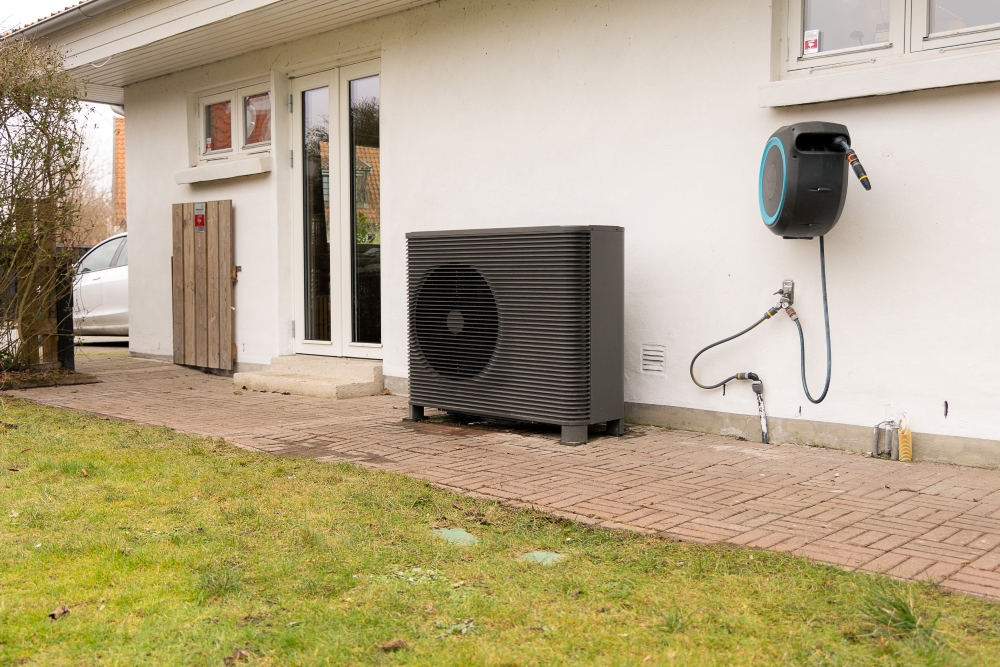Smart functionality and stricter cybersecurity standards will be mandated for heat pumps sold in the United Kingdom under a new regulatory roadmap announced by the government’s Department for Energy Security and Net Zero (DESNZ).
Energy Smart Appliances (ESA) regulations will put new requirements on heat pump manufacturers in line with existing regulations for electric vehicle chargers. Minimum requirements on smart functionality, cybersecurity and grid stability for smart electric heating appliances will be included in the new ESA rules.
The rules will see the United Kingdom adopt the European Telecommunications Standards Institute's (ETSI) EN 303 645 cybersecurity standard for internet-connected consumer devices. Grid stability measures include a requirement for devices to support a “random offset function” where there is a risk of herding, such as in response to a time-of-use tariff.
ESA regulations will apply to heat pumps with thermal capacity up to 45 kW. Subject to parliamentary approval, the regulations are expected become law within the next year with a 20-month grace period to allow manufacturers to update production before they are enforced.
The government claims its timeline gives manufacturers “sufficient time” to adapt to the new requirements, while ensuring sufficient regulations are in place “to mitigate the rising cybersecurity risks.” In response to its consultation with industry stakeholders, DESNZ said it expects these threats to “increase significantly” through 2027. The grace period for ESA rules will therefore stop at the end of 2027 “at the latest”, according to DESNZ, to ensure cybersecurity standards are in effect by the beginning of 2028.
DESNZ also announced it will introduce rules mandating battery energy storage systems, heat pumps and electric vehicle (EV) smart charge points can be operated across different utility company tariffs. Availability of time-of-use and type-of-use tariffs energy tariffs has been increasing in the United Kingdom as the deployment of heat pumps and EV charge points grows.
Swedish heat pump manufacturer Aira described the regulations as “brilliant news” for the industry, claiming it will support UK consumers as they transition from fossil-fuel-powered heating. Aira Group CMO Pamela Brown told pv magazine the company’s heat pump range is already compliant with the standard.
“In the UK, we can optimize against the full suite of Octopus tariffs so customers can choose what is best for them and we have plans to optimize against a broader range of energy company tariffs,” said Brown.
The new regulations will likely require tariff providers to adapt, Brown added, noting that some energy companies do not offer tariffs with API access, “especially in a machine-readable format in a machine-readable format that heat pumps can use.”
“Despite the need for industry developments, this will be an undeniably great move for the clean heat transition,” Brown said.
Increased consumer-led flexibility is a key component of the UK government’s clean energy roadmap. The UK government wants clean sources to produce at least 95% of Great Britain’s electricity generation by 2030.
Energy Minister Michael Shanks said the new standards bring a “common-sense approach” to smart appliances by ensuring different brands and models can operate across different energy suppliers.
This content is protected by copyright and may not be reused. If you want to cooperate with us and would like to reuse some of our content, please contact: editors@pv-magazine.com.



By submitting this form you agree to pv magazine using your data for the purposes of publishing your comment.
Your personal data will only be disclosed or otherwise transmitted to third parties for the purposes of spam filtering or if this is necessary for technical maintenance of the website. Any other transfer to third parties will not take place unless this is justified on the basis of applicable data protection regulations or if pv magazine is legally obliged to do so.
You may revoke this consent at any time with effect for the future, in which case your personal data will be deleted immediately. Otherwise, your data will be deleted if pv magazine has processed your request or the purpose of data storage is fulfilled.
Further information on data privacy can be found in our Data Protection Policy.